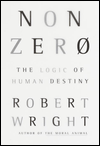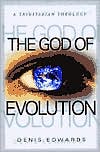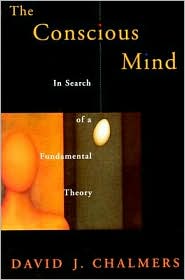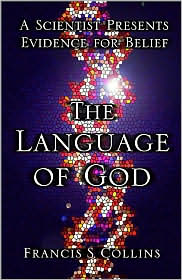Magazine Watch
"Rumsfeld's Wisdom," he calls the piece, after Defense Secretary Donald Rumsfeld recent pronouncements on the extreme difficulty the intelligence community has in dealing with "unknown unknowns, the ones we don't know we don't know." Science somehow learns to ask itself the questions which at first "we don't know we don't know."
One way is by scientists talking with one another. At a recent World Summit on Evolution, reports Shermer, leading scientists let down their hair and talked about many of the things the theory of evolution, as it stands, cannot yet explain.
Some of these things are known unknowns, such as how to account for the origin of life.
Others may verge on the territory of unknown unknowns, such as what new information, yet to come, might enable evolutionists to finally replace Darwin's now-known-to-be-"wrong" theory of sexual selection.
University of Massachussetts Amherst's Lynn Margulis even declared neo-Darwinism "dead." She said that "random changes in DNA alone do not lead to speciation," where so-called neo-Darwinian theory holds that mutations and similar changes in DNA — amplified over time and countless generations, of course, and abetted by natural selection — do fully account for the advent of new species.
Margulis now claims that symbiogenesis plays a major role: "the appearance of new behaviors, tissues, organs, organ systems, physiologies or species as a result of symbiont interaction." This insight, she says, applies to all eukaryotes in general: animals, plants, and fungi.
It's the first I've heard of symbiogenesis ... or symbiont interaction, for that matter. Shermer does not elaborate on their meaning. His point is rather that Margulis' heterodoxy and that of other summit participants is not a threat to all who, like Shermer, favor a theory of evolution without divine help:
During the conference, I had a nightmarish thought: creationists could have a field day yanking quotes out of context while listening to a room full of evolutionary biologists arguing over specific issues. In point of fact, such debates are all within evolutionary theory, not between evolutionary theory and something else. And this boundary between the known and unknown is where science flourishes.
Shermer's "something else" is creationism, which today is for the most part represented by "intelligent design," or ID.
All the noise ID proponents have been making is documented in an article in the Aug. 15, 2005, issue of TIME Magazine. Claudia Wallis' "The Evolution Wars" points out that President Bush has recently signed onto the push being made by ID proponents to "teach the controversy," which means to present the "theory" of intelligent design alongside standard Darwinian theory in high-school classrooms.
ID is basically the claim that much of biology — organs like an eye or a wing, even a single cell — is "irreducibly complex." There is no way to evolve irreducible complexity, say IDers. Evolution is and must be, Darwinists say, a gradual process. But IDers say there is no gradual process, however long in terms of time or generations, that can go from zilch to an eye.
Darwinists beg to differ, saying there are, too, ways to go gradually and step-by-step from zero vision to 20/20 vision.
Then IDers say, where's your evidence? All the posited, interim, incremental steps, if they happened, left no fossil evidence.
Then Darwinists say that is because the posited steps involve soft tissue that doesn't fossilize. But the lack of a smoking gun (see "Darwinians vs. Anti-Darwinians" sidebar in print magazine that is apparently not shown online) "cannot be taken as proof that a designer — intelligent or otherwise — deliberately skipped them."
That might not seem like a convincing victory for Darwinians. But the man who is most associated with advancing ID, Michael Behe, himself undercuts the victory. "Indeed, Behe concedes," writes Wallis, "'You can't prove intelligent design by experiment'." If we assume that "by experiment" means, more generally, "using hard empirical evidence," and if fossil evidence counts as hard empirical evidence, then Darwinists have more — much, much more — evidence to back their claims than IDers do.
Even ID favorers, according to Wallis, admit they prefer to go slow for the time being and just teach the so-called "holes" in standard Darwinian theory. To present ID as "ready for prime time," says oceanographer and ID proponent Edward Peltzer, is "premature for all kinds of reasons. ... The science is there, but the science textbooks are not. The teachers have to be trained. Its time will come. But its time is not now."
As for me, I have yet to see anything which leads me to agree that "the science is there."
Nor do I think it ever will be. ID is basically a negative claim: X did not happen, for it could never have transpired. In this case, the X which is denied as being outright impossible is a gradual, non-God-driven, strictly Darwinian process which ostensibly accounts for all the complexity of the biosphere today.
To prove a negative is a very, very hard thing to do.
Recasting it as a positive — God (or an intelligent designer) stepped in here, and here, and here — makes the problem no less tough. You can't run experiments on divine action.
That being said, I'm no fan of the arrantly atheistic wing of Darwinian science, as represented by Richard Dawkins. His tirade at a recent panel discussion on "Scientific Vantages," held at New York University in October 2004 and sponsored by the New York Institute for the Humanities, is the centerpiece of "Darwin's Rottweiler," Stephen S. Hall's in-depth article on Dawkins in the Sept. 2005 issue of Discover magazine.
Dawkins excellent books, such as The Selfish Gene, The Blind Watchmaker, Climbing Mount Improbable, and The Ancestor's Tale, explain Darwin's theory about as well as it has ever been explained for the lay reader. Dawkins has also advanced the adjunct to the standard theory that the gene, not the individual organism as a whole, is the basic unit which natural selection operates on. Other evolutionists are not so sure ... but never mind. It is Dawkins' third major theme that has those of them who believe in God, not to mention most creationists, cringing. In a nutshell:
At the New York symposium, Dawkins insisted that an anti-religious stance is a natural and inevitable outgrowth of evolutionary thought. "It's very clear that much of the opposition to evolution in this country ... is fed by the very suspicion, which I happen to think is justified, that evolution really is antireligious," he said.
Rebuttal for that outlook comes from Francis Collins, Director, National Human Genome Research Institute, in religion reporter David Van Biema's companion piece to the main TIME article, "A TIME Forum: Can You Believe in God and Evolution":
I see no conflict in what the Bible tells me about God and what science tells me about nature ... The mechanism of creation is left unspecified [by the Bible]. If God, who is all powerful and who is not limited by space and time, chose to use the mechanism of evolution to create you and me, who are we to say that wasn't an absolutely elegant plan? And if God has now given us the intelligence and the opportunity to discover his methods, that is something to celebrate ... For me scientific discovery is also an occasion of worship.
That goes along with the sentiments of Martin Nowak, a Harvard professor of mathematics and evolutionary biology, as reported in the main article:
Nowak, who describes himself as a person of faith, sees no contradiction between Darwin's theory and belief in God. "Science does not produce any evidence against God," he observes. "Science and religion ask different questions."
It seems to me that such questions about how science and religion can coexist, in view of Darwinian evolution theory, have as may answers as there are people of whom they may be asked. The same TIME forum represents Harvard psychology professor Steven Pinker as an atheist ally of Dawkins, but one whose primary objection to religion seems to be that it blinds us to the vast impefections in the natural order which God supposedly designed, and also to human evil done in religion's name:
The moral design of nature is as bungled as its engineering design. What twisted sadist would have invented a parasite that blinds millions of people or a gene that covers babies with excruciating blisters? To adapt a Yiddish expression about God: If an intelligent designer lived on Earth, people would break his windows ... In practice, religion has given us stonings, inquisitions and 9/11. Morality comes from a commitment to treat others as we wish to be treated, which follows from the realization that none of us is the sole occupant of the universe. Like physical evolution, it does not require a white-coated technician in the sky.
Interesting ... Pinker seems to believe that the best way to teach the golden rule famously advanced in the Bible — do unto others as you would have them do unto you — is to deep-six religion entirely!
Then there's Michael Behe himself. He says, "I think that we are all descended from some single cell in the distant past but that that cell and later parts of life were intentionally produced as the result of intelligent activity. As a Christian, I say that intelligence is very likely to be God." So Darwin was right about the common descent of all life forms from a single, simple ancestor ... but wrong about the process being a wholly naturalistic one.
Finally, Albert Mohler, president of the Southern Baptist Theological Seminary, apparently thinks even Behe much too liberal:
Personally, I am a young-Earth creationist. I believe the Bible is adequately clear about how God created the world, and that its most natural reading points to a six-day creation that included not just the animal and plant species but the earth itself ... I think it's interesting that many of evolution's most ardent academic defenders have moved away from the old claim that evolution is God's means to bring life into being in its various forms. More of them are saying that a truly informed belief in evolution entails a stance that the material world is all there is and that the natural must be explained in purely natural terms. They're saying that anyone who truly feels this way must exclude God from the story. I think their self-analysis is correct. I just couldn't disagree more with their premise.
Can anyone come up with a way to settle such disputes to everyone's satisfaction? I seriously doubt it.


















0 Comments:
Post a Comment
<< Home